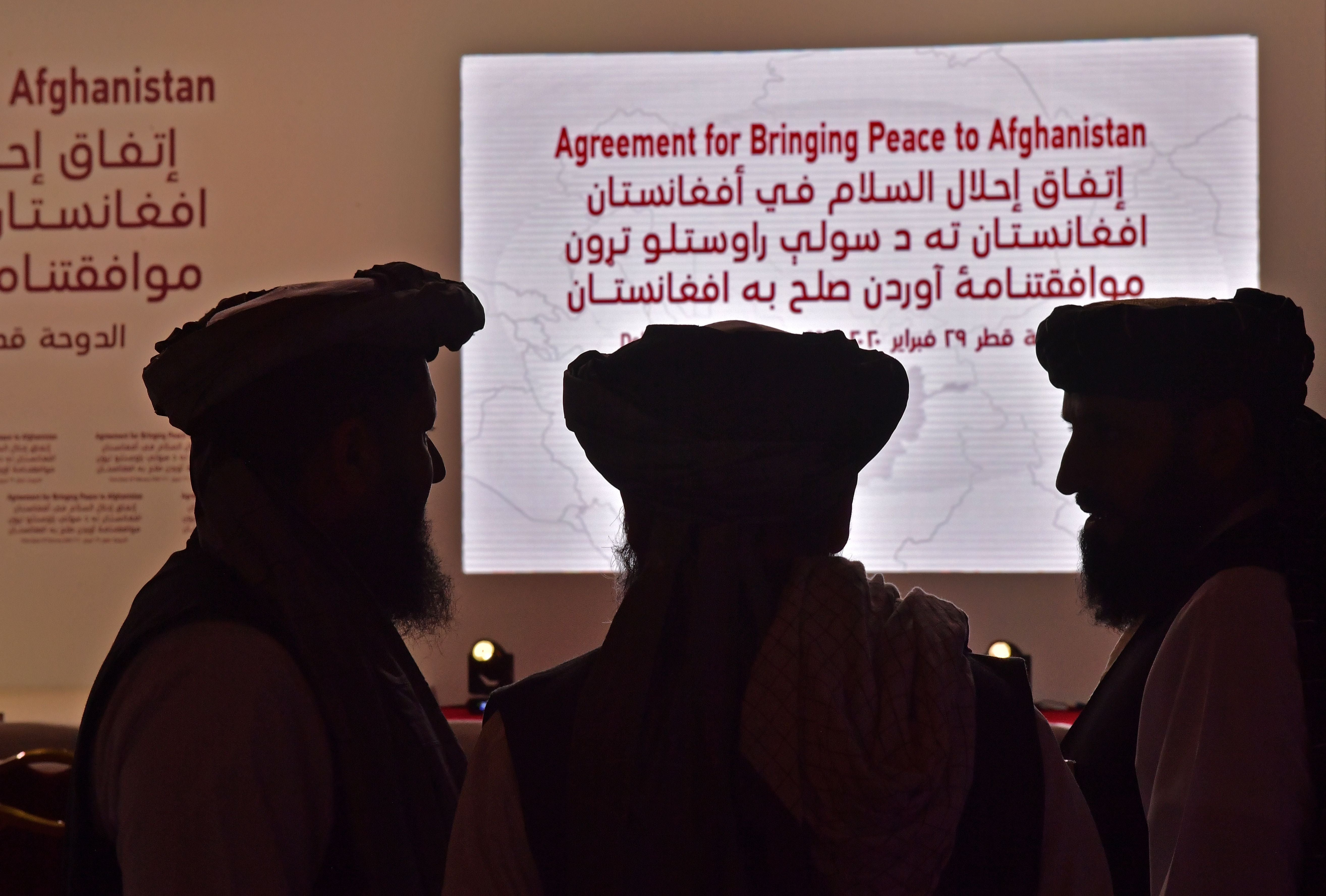US to meet Taliban officials in rare talks in Doha to discuss economy and women’s rights
Hardline rulers will seek end to sanctions – a top indicator that would legitimise their regime if accepted

Your support helps us to tell the story
From reproductive rights to climate change to Big Tech, The Independent is on the ground when the story is developing. Whether it's investigating the financials of Elon Musk's pro-Trump PAC or producing our latest documentary, 'The A Word', which shines a light on the American women fighting for reproductive rights, we know how important it is to parse out the facts from the messaging.
At such a critical moment in US history, we need reporters on the ground. Your donation allows us to keep sending journalists to speak to both sides of the story.
The Independent is trusted by Americans across the entire political spectrum. And unlike many other quality news outlets, we choose not to lock Americans out of our reporting and analysis with paywalls. We believe quality journalism should be available to everyone, paid for by those who can afford it.
Your support makes all the difference.Afghanistan’s economic crisis, security issues and women’s rights are set to be discussed between US officials and ruling Taliban representatives in a rare round of talks taking place for the first time since the fall of Kabul to the hardline regime in 2021.
US State Department deputy spokesperson Vedant Patel on Wednesday announced the talks in Qatar’s capital Doha, but also said they do not “mean any kind of indication of recognition or any kind of indication of normalisation or legitimacy of the Taliban”, amid concerns about human rights abuses and gender apartheid against women and girls in Afghanistan.
The officials and de facto representatives will be joined by “technocratic professionals” from ministries in Kabul. “We have been very clear that we will engage with the Taliban appropriately when it is in our interest to do so,” Mr Patel said, while adding that they did not mean any change in policy.
Earlier remarks of gradually recognising the de facto Taliban rulers as the official administration in charge of Afghanistan, dubbed “baby steps” by UN deputy secretary general Amina Mohammed, had sparked an uproar among locals and political commentators.
They had condemned the official remarks to legitimise the hardline regime that has banned girls and women from schools, colleges, universities and most workplaces in addition to rolling out public execution and flogging to maintain law and order.
The Taliban delegation in the Gulf nation will be represented by the regime’s acting foreign minister Amir Khan Muttaqi, its foreign ministry spokesperson said in a statement.
Both delegations, before sitting down in Qatar, will travel to Kazakhstan where they will meet officials from there, the Kyrgyz Republic, Tajikistan, Turkmenistan and Uzbekistan to discuss Afghanistan, the State Department said.
The leaders will also meet civil society members focused on women’s rights. The trip to Kazakhstan and Qatar will be held from 26-31 July, the State Department said.
Qatar has been a key player in discussions between the Taliban and the US for many years. It hosted months of US-Taliban peace talks and has since been critical to the evacuation of American citizens and others from Afghanistan. Roughly half the people who have left the country have transited through Qatar.
The Taliban rulers will be seeking an end to financial sanctions, the Afghan foreign ministry said, something that, if done, would be the top indicator that Taliban rule will be legitimised.
“Afghanistan’s priority during talks are ending sanctions and blacklists, unfreezing Afghanistan’s bank reserves and stopping violation of Afghanistan’s airspace,” it said, adding they would also meet Qatari officials.
The Taliban’s rule and stronghold over Afghanistan, which it took by toppling the Nato-backed Ashraf Ghani’s administration in August 2021, has not been formally recognised by any foreign nation for almost two years now.
Its leaders are seeking recognition for stabilising the country’s battered economy and paving way for financial aid from the West, while also subjecting most of the population to its interpretation of Sharia law and banning women from public spaces in a stark reminder of its 1990s rule.
Thousands of desperate Afghans rushed to flee the country in 2021 in grim visuals of chaotic exits, when the Taliban gradually inched closer to the presidential palace in Kabul to cement its grip over the country.
Men were seen clinging to US Air Force planes taxiing down runways and families were seen tossing infants across building parapets to send them away from Afghanistan, confirming the fear of Taliban’s rule.
President Joe Biden’s administration faced flak for the chaotic pullout which was negotiated by his predecessor Donald Trump and rolled out shortly after the Democratic leader entered the White House.





Join our commenting forum
Join thought-provoking conversations, follow other Independent readers and see their replies
Comments